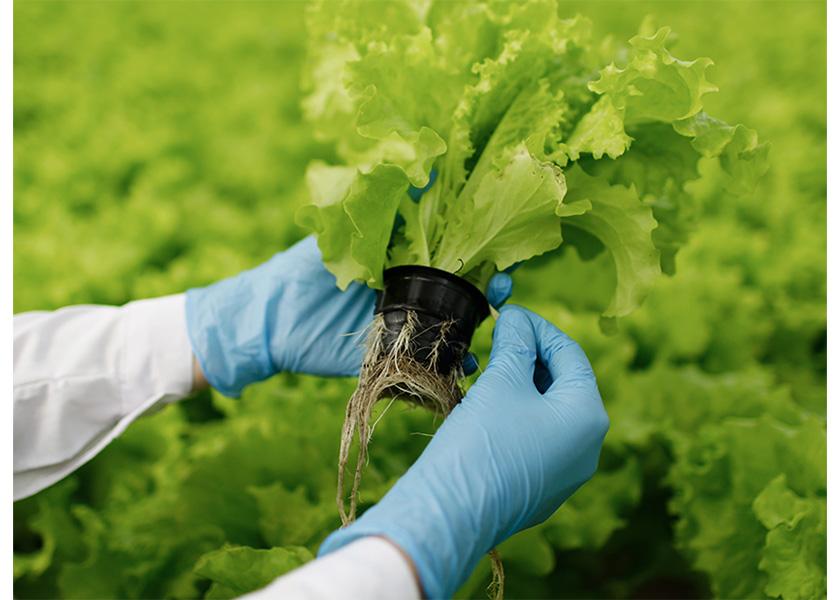Study: Multistate foodborne illness outbreaks change public perception of restaurants

Multistate foodborne illness outbreaks bring swift financial losses to restaurants, increased media attention and an environment that makes subsequent smaller outbreaks more financially damaging, a new study says.
The research, from University of Illinois Urbana-Champaign’s consumer economics professor Maria Kalaitzandonakes, said that more than 60% of foodborne illness outbreaks in the U.S. occur at restaurants, according to a news release.
Most of those outbreaks are confined to a single state, however, when restaurants experience multistate outbreaks — as did the fast-casual chain Chipotle Mexican Grill in 2015 — that can lead to a stock market penalty, substantial negative news media coverage and a discernible change for the worse in how investors and the public view the company’s smaller outbreaks, according to Kalaitzandonakes.
“When a restaurant has a single-state outbreak, the public may not even hear about it,” she said in the release. “But if you have what happened at Chipotle — where your brand becomes associated with foodborne illness after a multistate outbreak — that’s when you start to see responses to these single-state outbreaks. Investors start to get rattled, the media pays attention and we see clear impacts from those types of outbreaks.”
The paper, which was published by the journal Agribusiness, was co-written by Maria Teresa Serra Devesa, the university's T.A. Hieronymus Distinguished Chair in Futures Markets, and Brenna Ellison of Purdue University, according to the release.
To gauge the effect of foodborne illness outbreaks, researchers studied eight such occurrences at the ubiquitous fast-casual chain to evaluate the media and stock market responses to both single and multistate outbreaks.
“We chose to study Chipotle because it’s publicly traded and not owned by a parent company, which means we can zero in on the financial impacts of the outbreaks through the change in its stock price,” Kalaitzandonakes said. “We were able to identify the first announcement for each outbreak and get stock price data down to the minute level.”
In their analysis, the researchers found “a fundamental shift” in news coverage and stock-market response to single‐state outbreaks before and after Chipotle’s multistate E. coli outbreaks, according to the paper.
Before Chipotle’s more well-known multistate outbreaks, the company’s single‐state outbreaks earned little public scrutiny and incurred no financial losses for the company — whereas after the multistate food safety events, subsequent single‐state outbreaks resulted in national media coverage and financial losses, Kalaitzandonakes said.
“We’d expect multistate outbreaks to be newsworthy nationally, so the fact that Chipotle’s multistate E. coli outbreaks were highly reported on is intuitive," she said. "It is less expected that single-state outbreaks would be of interest to national news.”
But the results show that media attention for single‐state outbreaks depended on whether they occurred before or after the multistate outbreaks, Kalaitzandonakes said.
“Before, media attention of single-state outbreaks was low, generating only a handful of news stories,” she said. “After, media attention was much higher, generating hundreds of news stories with national audiences.”
Similarly, the researchers found that Chipotle’s multistate outbreaks were associated with declines in stock price returns of more than 5%, resulting in a market capitalization decline of $1.75 million. But the impact of Chipotle’s single‐state outbreaks was more nuanced, according to the study.
Single‐state outbreaks that occurred before the multistate outbreak brought no losses, whereas single‐state outbreaks that occurred after resulted in a 4% to 7% reduction in Chipotle’s stock price returns, the release said.
“This could be for a variety of reasons — increased media coverage, reduced faith in management, worry about consumers staying away and reducing revenues, and so on,” Kalaitzandonakes said.
The researchers found that the differences in both media coverage and stock market response to single‐state outbreaks before and after Chipotle’s multistate E. coli outbreaks were unrelated to their severity, suggesting that multistate outbreaks changed the calculus for both media and investor perceptions about foodborne illness risk at the chain, the release said.
“Before the multistate outbreaks, which generated significant negative national media attention, these single-state outbreaks didn’t really register,” Kalaitzandonakes said. “But single-state outbreaks after the multistate outbreak — investors responded very quickly and negatively, indicating they thought these events were risky.”
The lessons from Chipotle’s case underscore the importance of restaurants investing in outbreak prevention, Kalaitzandonakes said.
“Foodborne illness outbreaks at restaurants are most frequently caused by sick workers or poor food handling practices,” she said. “So preventing foodborne illness through enhanced safety measures is a relatively straightforward fix that’s likely to have a high return on investment for both the company and public health.”
Related link: Access “The financial impact of foodborne illness outbreaks at restaurants: Chipotle Mexican Grill”







